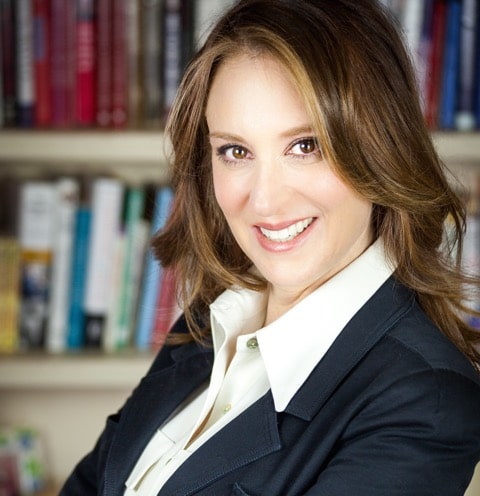
By now, commentators have noted the similarities between our coronavirus crisis and the classic “trolley problem,” first formulated by the late philosopher Philippa Foot.
Imagine there’s a runaway trolley heading straight for five people who will be killed. You’re standing next to a lever. If you pull it, the trolley will switch to a different track where only one person will be killed.
Most people say the moral choice is to spare the five and sacrifice the one. This may be akin to how many conceive of extreme measures to limit the spread of the novel coronavirus: The right thing to do is to issue and enforce stay-at-home orders and shutter businesses for as long as it takes to spare the maximum number of people at greatest risk from the virus.
For many of those who are certain that this is the only moral solution, the choice seems crystal clear. It appears to be a tradeoff between lives and money — that is, between a sacred value and a secular interest. This is what social scientist Philip Tetlock calls a “taboo tradeoff.”
When a tradeoff is taboo, there is no discussion or debate possible. Choosing the sacred value is entirely uncontroversial. As New York Governor Andrew Cuomo put it, “I’m not willing to put a price on a human life,” and “we’re not going to accept a premise that human life is disposable.”
The trolley problem has several variants, however. In another, devised by philosopher Judith Jarvis Thomson, you are standing on a footbridge above the track next to a very large man. If you push that large man onto the track, the trolley will stop and the five people will be spared. The man, however, will die.
Most people think that pushing the man over the bridge would be immoral. But not everyone. In either case, you spare five by killing one.
Let me propose another version: To stop the trolley, you must push the large man off the bridge. But no one is entirely certain whether that will be enough. You might need to force another person off. And perhaps another. There’s no way to know in advance exactly how many people must be pushed onto the track in order to stop the trolley from killing the five people in the trolley’s path. Perhaps just one. But it could turn out that as many people must be sacrificed as will be saved.
Returning to our current crisis, using this lens, skeptics aren’t the cold-hearted monsters they’re made out to be. It’s not that they care more about money than your grandmother’s life. Instead, they are thinking about the people who will suffer from unemployment, poverty, loneliness, and despair. And they are imagining some point in the future when an unknown number could die from increases in child and domestic abuse, addiction and overdose, unmet medical needs, suicide, and so on.
Dr. David Katz of the Yale-Griffin Prevention Research Center articulated this view when he wrote about the “unemployment, impoverishment, and despair likely to result” from a long-term economic shutdown. He is “deeply concerned that the social, economic and public health consequences of this near total meltdown of normal life” could be “graver than the direct toll of the virus itself.”
From this perspective, the tradeoff is not taboo. We aren’t talking about substituting lives for money, but one set of lives for another.
We aren’t talking about substituting lives for money, but one set of lives for another.
In all of these trolley scenarios tragedy ensues regardless of the choice. There is no happy solution. There are no uncontroversial answers. These are the hallmarks of a classic moral dilemma.
On March 10th, a lifetime ago in pandemic time, social scientist Yascha Mounk wrote an article urging us to “Cancel Everything.” A week later, Jeffrey Goldberg, The Atlantic’s editor-in-chief, tweeted Mounk’s article along with the comment, “It’s hard to believe today that it was controversial at the time.”
This brings us to the larger point. We urgently need to reject the idea that these choices are uncontroversial. It is all too easy to cast some people as saints and others as knaves. And we must get past the false debate of lives-versus-money.
The harder but truer and more productive debate rejects casting moral aspersions. It involves recognizing that we share common goals but have different views about how to achieve them, based on our different ways of conceptualizing unknowables and prioritizing immediate versus future dangers.
In order to solve pressing problems, we need to free our minds from the constraints that drive us to interpret and represent our ideological opponents’ ideas as attacks from enemies. Instead, we need to be able to use their ideas to test, strengthen, and build on our own.
This requires habits of mind that in recent times we have practiced too seldom and valued too little: Approaching dissenters’ views with curiosity, critical thinking, intellectual humility, and a willingness to be wrong; using the principle of charity when evaluating ideological opponents’ ideas; thoroughly considering views before rejecting them; refusing to assign malign intentions to those whose ideas we dislike; accepting that for some problems there are no risk-free solutions; and welcoming dissent and disagreement as necessary to a functioning liberal democracy.
One of the chief reasons these habits of a free mind are so essential is that without exercising them, we cannot even get to the point of having the right conversations. Having the right conversation doesn’t guarantee that we will get to the right answer, but at least it gives us a fighting chance.
PAMELA PARESKY is teaching “Habits of a Free Mind: Psychology for Democracy” at the University of Chicago & works for FIRE. Find her @PamelaParesky and PsychologyTodayBlog.com
Pamela Paresky’s opinions are her own and should not be considered official positions of the Foundation for Individual Rights in Education or any other organization with which she is affiliated. Follow her on Twitter @PamelaParesky


































 More news and opinions than at a Shabbat dinner, right in your inbox.
More news and opinions than at a Shabbat dinner, right in your inbox.